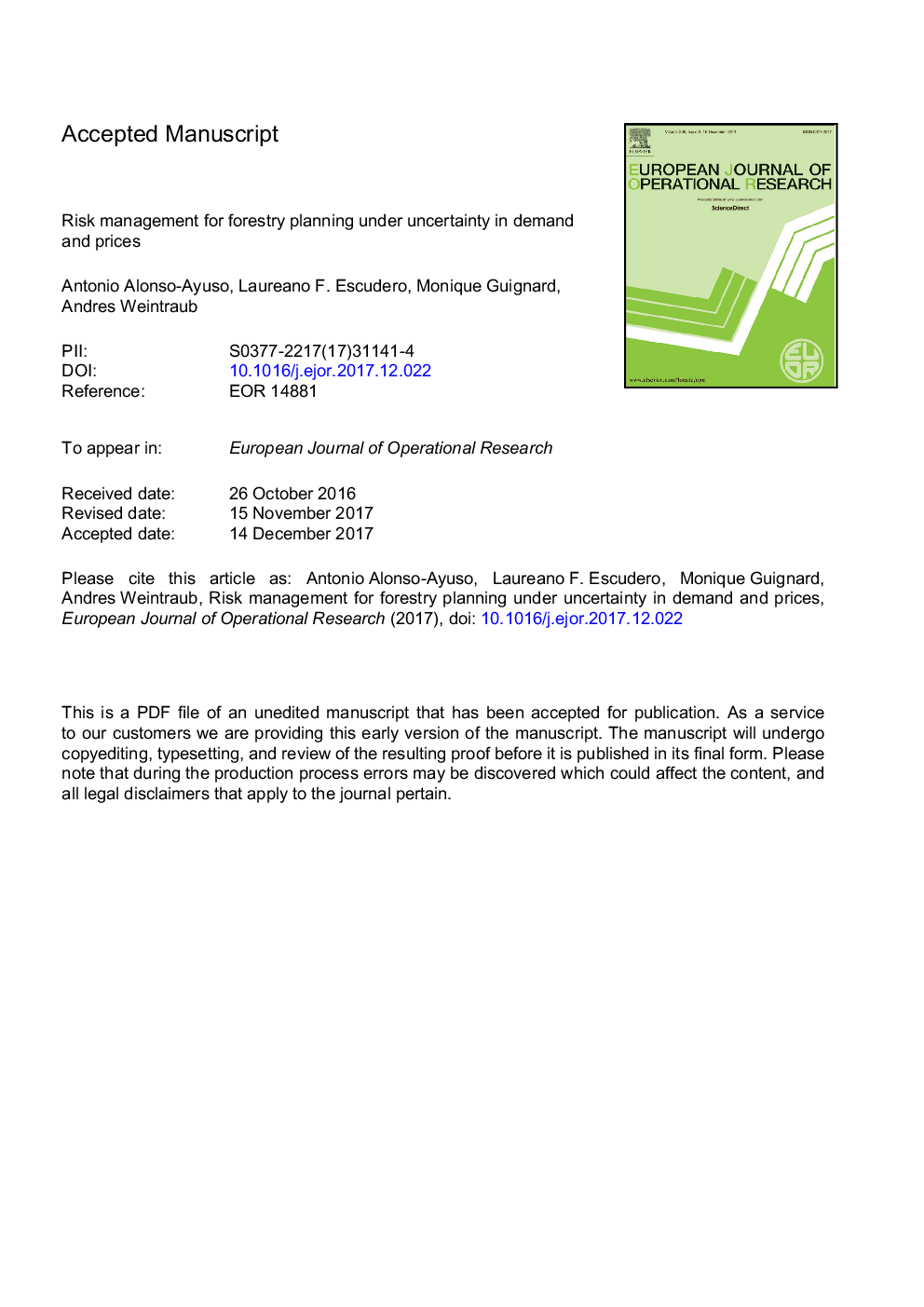| Article ID | Journal | Published Year | Pages | File Type |
|---|---|---|---|---|
| 6894971 | European Journal of Operational Research | 2018 | 50 Pages |
Abstract
The paper presents and compares approaches for controlling forest companies' risk associated with advance planning under variable future timber prices and demand. Decisions to be made in advance are which stands to cut and which new access roads to build in each period, while maximizing profit under manageable risk. We first developed a tighter, improved formulation of our earlier deterministic mixed 0-1 model (see Andalaft et al. (2003)), and its stochastic counterpart for a set of representative scenarios, an extension of our simplified risk-neutral version (see Alonso-Ayuso, Escudero, Guignard, Quinteros, and Weintraub (2011)). Using the expected value of the stochastic parameters might produce poor or even infeasible solutions if some extreme scenarios are realized. A stochastic model, however, enables the planner to make more robust decisions. In particular, being able to control risk in early periods is important, as firms tend to emphasize short term financial results. We tested two risk measures that extend the classical Conditional Value-at-Risk (CVaR) by controlling the risk at a subset of intermediate periods (time-inconsistent TCVaR) or at a subset of scenario groups (time-consistent ECVaR), with time consistency as given in Homem-de Mello and Pagnoncelli (2016) and others. We also combined TCVaR and ECVaR into what we call MCVaR. We analyzed the planned and implementable policies of all above risk measures in a broad computational experiment, on a large size realistic instance. The results show that ECVaR, TCVaR and MCVaR outperform the classical CVaR approach. MCVAR usually provides better solutions for the first periods with overall profit distribution similar to the other measures for the planned policy, TCVaR gives the highest profit results for the implementable policy, while ECVaR gives the highest profit at the end of the time horizon in both policies.
Related Topics
Physical Sciences and Engineering
Computer Science
Computer Science (General)
Authors
Antonio Alonso-Ayuso, Laureano F. Escudero, Monique Guignard, Andres Weintraub,
